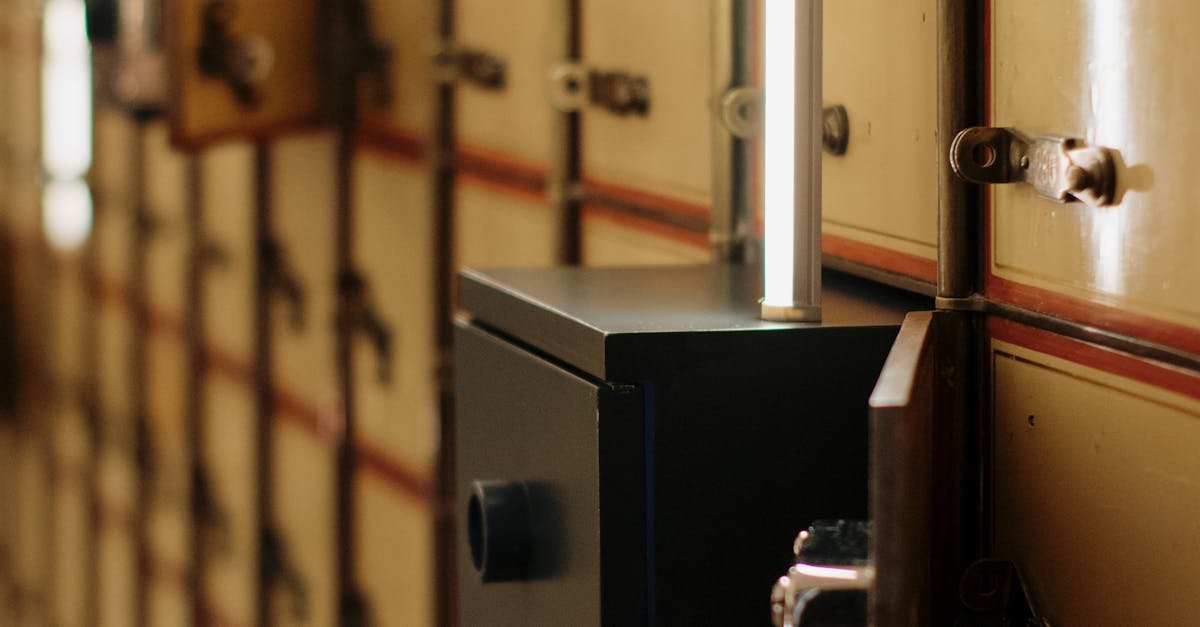When it comes to safeguarding your valuables, a safe deposit box is a reliable option. However, the costs associated with these boxes can vary significantly from bank to bank. In this article, we’ll explore which banks offer the cheapest safe deposit box services, allowing you to protect your important items without breaking the bank.
| Bank Name | Annual Fee | Box Sizes Available | Location Availability |
|---|---|---|---|
| Bank of America | $50 | Small, Medium, Large | Nationwide |
| Wells Fargo | $75 | Small, Medium, Large, Extra Large | Nationwide |
| Chase Bank | $100 | Small, Medium | Nationwide |
| PNC Bank | $60 | Small, Medium | Selected States |
| Citibank | $80 | Small, Medium, Large | Selected Cities |
Bank of America
Bank of America offers one of the most affordable options for safe deposit boxes, with annual fees starting at just $50. They provide various box sizes, including small, medium, and large, making it easy to choose one that fits your needs. With branches located nationwide, accessing your safe deposit box is convenient, allowing you to secure your valuables effectively.

Wells Fargo
Wells Fargo’s safe deposit boxes come with an annual fee of $75, and they provide a range of sizes from small to extra-large. This flexibility is great for customers who may need a larger space for their items. As a major bank with a broad national presence, Wells Fargo ensures that you can find a branch nearby to access your box whenever necessary.

Chase Bank
Chase Bank offers safe deposit boxes at an annual fee of $100. They provide small and medium box sizes, suitable for most personal items. While their fees are slightly higher than some competitors, their extensive branch network makes accessing your valuables convenient, particularly in urban areas.

PNC Bank
PNC Bank provides a competitively priced option with an annual fee of $60. They offer small and medium box sizes, which are ideal for personal documents and other valuables. However, PNC’s branches are primarily located in selected states, so availability may be limited depending on your location.

Citibank
Citibank’s safe deposit boxes are available for an annual fee of $80. They provide small, medium, and large box sizes, catering to a variety of storage needs. While their presence is concentrated in selected cities, Citibank’s reputation for security and customer service makes them a solid choice for those who can access their branches.

FAQ
What is a safe deposit box?
A safe deposit box is a secure storage space located within a bank or financial institution where individuals can store valuable items, important documents, and other belongings. These boxes are typically locked and can only be accessed by the box holder, providing a high level of security compared to home storage options.
How much does it typically cost to rent a safe deposit box?
The cost of renting a safe deposit box varies significantly depending on the bank and the size of the box. Annual fees can range from around $50 to over $100, depending on the institution and the box size chosen. It’s essential to compare prices and services to find the best option for your needs.
Are safe deposit boxes insured?
Safe deposit boxes themselves are not insured by the bank. However, the contents of the box may be covered by your homeowner’s or renter’s insurance policy. It’s advisable to check with your insurance provider to ensure your valuables are adequately protected.
Can I access my safe deposit box at any time?
Most banks allow customers to access their safe deposit boxes during regular banking hours. Some institutions may offer extended access, but it is generally recommended to check with your specific bank regarding their policies and hours of operation.
What items should not be stored in a safe deposit box?
While safe deposit boxes are ideal for storing valuable items, certain items should not be kept in them. These include cash, items that require frequent access, and any items that could be considered illegal or hazardous. Always check with your bank for their specific guidelines on acceptable items.
References:
– [Consumer Financial Protection Bureau](https://www.consumerfinance.gov)
– [Federal Deposit Insurance Corporation](https://www.fdic.gov)

